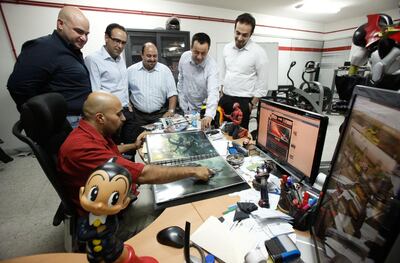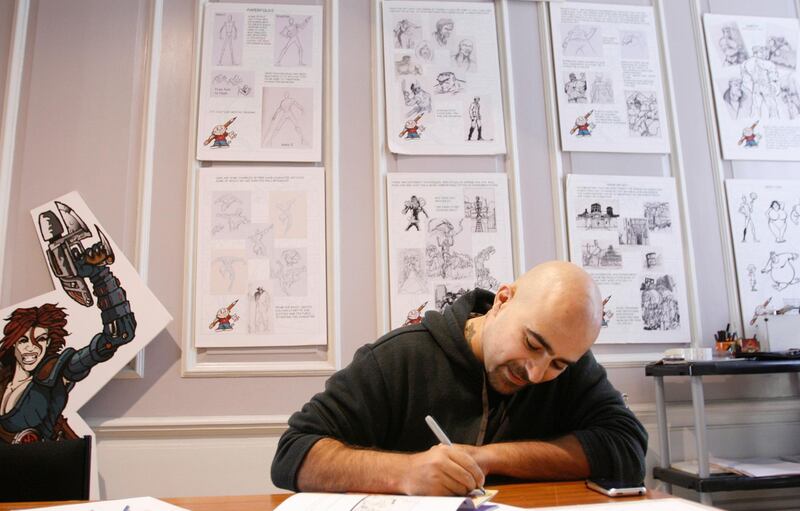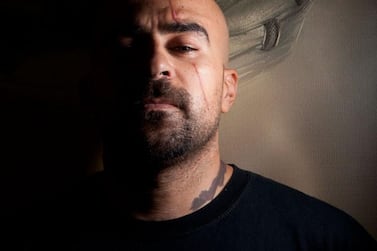Jordanians have laid to rest a prized voice in the fight against extremism, Suleiman Bakhit, after his long struggle with cancer.
Suleiman, whose death was reported on Thursday, was among the most renowned comic book authors in the Arab world. His life had been devoted to the development of inspiring comic book heroes for the youth of Jordan and the region. This interest largely came in response to his discovery that children in underprivileged areas of Jordan had no heroes to identify with other than those celebrated and promoted by extremist groups.
Over the span of over ten years Suleiman sold over 1.2 million comics that featured characters who were positive hero images. Suleiman said that this was his way in which he could spread seeds of imagination, seeds of possibility and seeds of positive heroism among youth. The World Economic Forum added that it was also a way to promote hope, tolerance and gender equality, notions all considered anathema to extremist groups.
Narratives have an important role in shaping extremist views. Extremist groups have been highly adept at using socio-economic and political grievances to shape narratives that further alienate and radicalize youth.
While the explosion of social media and the revolution in information and communication technology allowed for greater access to information and supported democracy in the region, it was also exploited by extremist groups as a means to share their narratives in an unprecedented manner, making youth further vulnerable to terrorist recruitment and violence.

Sandwiched in a region facing regular conflict and ongoing occupation, Jordan’s military and security establishments have always had to be among the most effective. Yet, in the era of the Fourth Industrial Revolution, the security landscape poses new hybrid threats that cannot be addressed by the traditional “guns, gates and guards” model known to them. This is where Suleiman’s work was so critical. Using a combination of entrepreneurship and art he was able to do something no security agency would have been able to do, nor should be expected to do.
In doing so, Suleiman inadvertently became a positive image of what it means to be a Muslim, an Arab and a Jordanian, very much like his comic characters. Additionally, and probably unbeknownst to him, he challenged traditional definitions of heroism in Jordan, namely to think differently about what it means to be working for the security of the country and in what capacity. This is really what disruption is all about but we rarely think of disruption when looking at the security sector.
Suleiman faced his death with the same courage he exhibited in his fight against extremism. During our last communication a few months ago, Suleiman sent me a voice note in which he told me not to worry about him. He said, “suffering gave me the gift of stillness despite all the pain that came with it. I’m probably the happiest I could be in my life…I’m at peace. I’m not worried. It’s incredible.” He then finished his message with a citation of Rumi, in which he said that the wound is the place where the light shines in. If I had the chance to tell him something now, I would tell him that his wounds gave us a chance to see the brilliant light that shone out of him as well.
Nasser Bin Nasser is a Young Global Leader from Jordan. He is the managing director of the Middle East Scientific Institute for Security (MESIS), heads his own consultancy firm, and serves as a Non-Resident Fellow at the Washington-based Middle East Institute
Twitter: @nasserbinnasser






